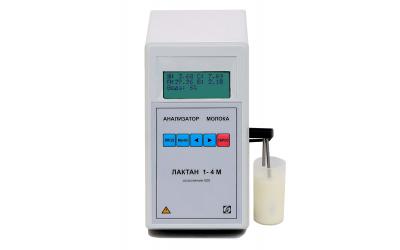Rosselkhoznadzor introduced an enhanced laboratory control regime for 3 Russian exporting companies

To prevent the supply of goods to foreign markets that do not meet legal requirements, ROSSELKHOZNADZOR introduced an enhanced laboratory control regime for the products of the following enterprises:
Altai region
— LLC “I give you Altai.” In selected samples of honey from this manufacturer, hydroxymethylfurfural was found in an amount of 33.7 μg/kg, with the standard not exceeding 25.0 mg/kg.
Hydroxymethylfurfural is an intermediate product of the chemical decomposition of sugars. Its high content in honey may indicate feeding the bees with heated SUGAR or molasses, or repeated heating of the honey. This indicator refers to indicators of the quality and safety of the technological process and may indirectly indicate falsification of products.
Republic of Tatarstan
— Archa LLC. In dry MILK whey of this organization, taken for research in one of the large companies producing feed additives in the Smolensk region, lincomycin was detected in an amount of 13.30 μg/kg and tylosin in an amount of 3.36 μg/kg. Detection of residues of these medicines in food products is not allowed and indicates a violation of technical regulations.
Lincomycin and tylosin are antibiotics from the lincosamide and macrolide groups. The drugs may cause decreased immunity and allergic reactions. Repeated use of products containing antibiotics may lead to the development of persistent antimicrobial resistance, which can lead to difficult-to-treat infectious diseases in people.
Saratov region
— Saratov MPK Resurs LLC. The company supplied semi-dry sausage containing sulfite-reducing clostridia to two stores of a large food chain in the Tambov region.
Some strains of sulfite-reducing clostridia can cause intestinal diseases in humans, characterized as foodborne diseases. The proliferation of clostridia is facilitated by the lack of free oxygen in the thickness of the food product, especially in vacuum packaging.
The Service also reports the detection of chlortetracycline in the pork of Southern MEAT Processing Plant LLC (Krasnodar Territory) in the amount of 14.8 mcg/kg, with the standard not exceeding 10 mcg/kg.
Chlortetracycline is an antibiotic of the tetracycline group. The drug may cause decreased immunity and allergic reactions. Repeated use of products containing antibiotics may lead to the development of persistent antimicrobial resistance, which can lead to difficult-to-treat infectious diseases in people.
Read together with it:
- Rosselkhoznadzor has banned meat imports from two Belarusian enterprises due to violations.In addition, three other Belarusian producers are now subject to strict laboratory monitoring due to initial deviations: azithromycin was found in poultry MEAT from Druzhba Poultry Farm, and the pesticide imidacloprid was found in honey from Pchalyar Polachchyny Farm. Powdered MILK from Luninetsky Dairy Plant was also found to containcoli bacteria . These measures were taken at the request of the ...
- В Амурскую область поступило свыше 6 тысяч тонн мяса птицы из КитаяС 3 июня по 6 ноября инспекторы проверили 290 партий мяса, все из которых были сопровождены ветеринарными сертификатами, подтверждающими их качество и безопасность. Лабораторные исследования, проведенные под контролем Россельхознадзора, не выявили нарушений, и груз был допущен на территорию России.
- Buryatia has declared a state of high alert due to a pasteurellosis outbreak.A state of high alert has been established in six districts: Mukhorshibirsky, Bichursky, Zaigraevsky, Kyakhtinsky, Kizhinginsky, and Yeravninsky, which border the Zabaykalsky Krai. Veterinary checkpoints are in operation around the clock on the roads leading out of this region, monitoring transported animals and products. Pasteurellosis is an infectious disease dangerous to cattle, small ruminants...
- Россельхознадзор провел надзорный контроль за 18 тысячами тонн животноводческой продукции в Кировской областиТакже зарегистрированы 2 партии куриных лапок весом 47,2 тонны, отправившихся на экспорт в Китай. Перевозки проходили в рамках условий регионализации. В регион были ввезены кормовые добавки и корма из нескольких областей, включая Курскую, Калининградскую и Волгоградскую. В свою очередь, из Кировской области было отправлено 36 партий яиц в Коми и Ямало-Ненецкий автономный округ, а также 7 партий об...
- В Красноярске приостановили работу павильона из-за нелегальной продажи мясаНарушения выявил Россельхознадзор, после чего было возбуждено административное дело против предпринимателя. Изъятое мясо направлено на уничтожение, а деятельность павильона будет приостановлена на 20 суток.
- A new procedure for registering veterinary drugs will come into force in 2026.Since 2022, ROSSELKHOZNADZOR has already begun transitioning to an electronic registration format, allowing producers to submit applications online , significantly reducing processing time. However, paper applications remained available, which slowed down the process. Under the new regulation, manufacturers must use a single platform for submitting documents with an enhanced, qualified electronic ...




























































